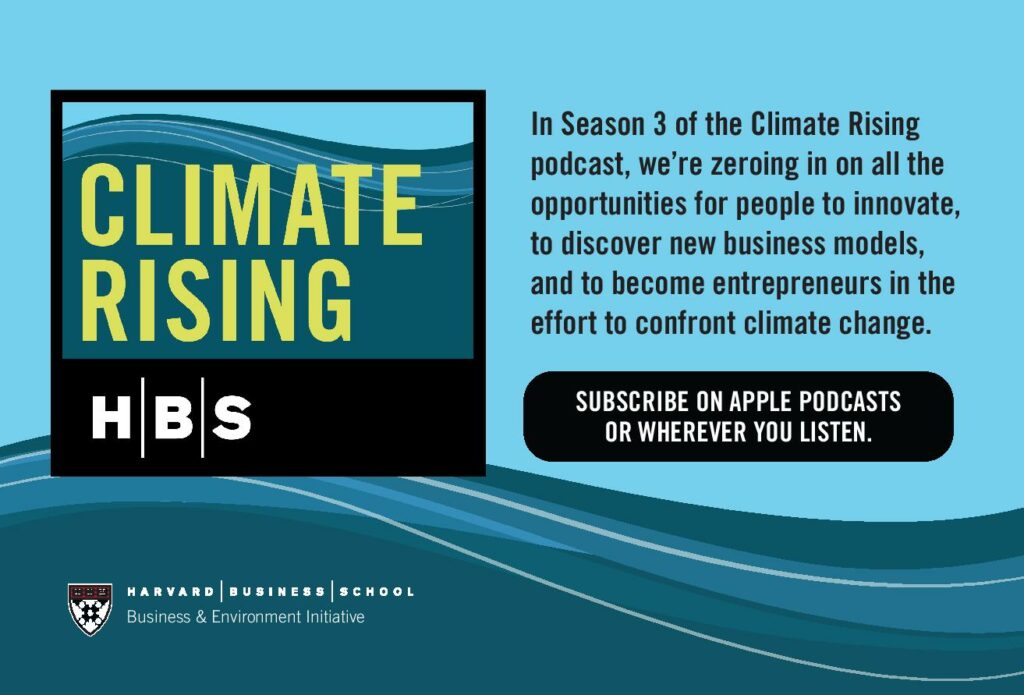Roger Shamel (MBA ’74) calls for Harvard leadership to take action on Climate Change

Is the climate crisis real? Is it really that serious? Are urgent actions needed? What’s Harvard’s role?
Sadly, many members of the 400,000-strong Harvard community still don’t know the answers to these existential questions. More importantly, many don’t know that humankind is at serious risk of crossing vague red lines beyond which it may be impossible to preserve a livable climate for future generations.
What More Can Harvard Leaders Do?
In a few words, put Harvard’s climate leadership in the news! Publicly, unabashedly, seek non-fossil-fuel donations to fund a “Harvard University Climate Initiative.” Begin an outreach program to inform the Harvard community that their talent and treasure are needed. Alumni will respond.
Climate change represents an unprecedented threat, and also an unprecedented, red-eyed, black swan opportunity. Encourage the Harvard community to show its world-changing capabilities for making a positive difference. Make it clear, without hyperbole, that civilization itself may literally be at stake.
Harvard taught us to be leaders who make a difference in the world. Now we want Harvard leaders to make a difference that only they can make. We want them to speak out loudly and clearly about climate!
What’s Needed Now, Before It’s Too Late
 For Harvard University: A new Harvard University Climate Initiative would work to integrate and augment the climate-related activities being carried out independently by Harvard’s various schools. This initiative would be responsible for bringing a new, and much-needed, sense of unity and urgency to the work. The HUCI would be administered by a University Climate Officer who would report to President Bacow while providing world-class direction, facilitating inter-school cooperation, and more.
For Harvard University: A new Harvard University Climate Initiative would work to integrate and augment the climate-related activities being carried out independently by Harvard’s various schools. This initiative would be responsible for bringing a new, and much-needed, sense of unity and urgency to the work. The HUCI would be administered by a University Climate Officer who would report to President Bacow while providing world-class direction, facilitating inter-school cooperation, and more.
For Harvard Business School: As previously conveyed to Dean Datar, elder alumni believe that HBS should initiate a Climate Project, similar to the Energy Project initiated by Dean Fouraker at the time of the 1970s energy crisis. Business bears a special responsibility relating to the climate crisis because business contributed substantially to its creation, and business will be critical to a successful outcome.
As accounting professionals know, neither companies nor societies, can hope to long be successful without a true tally of income and expenses. And one can reasonably maintain that the fundamental reason for today’s climate crisis is that we have, for far too long, not properly included the overlooked, “external” costs of carbon pollution on our income statements and balance sheets. Part of the solution is to encourage proper accounting by including this “social cost of carbon” in all future transactions.
Note: One can’t write of Harvard, nor of HBS, without recognizing the climate-related progress made to date by President Bacow, and HBS’s Business & Environment Initiative. So, kudos, and carry on!
Leaders See What Needs to be Done and They Do It
World-class leadership is about taking the initiative to solve problems before most people even see them. Yet, even the greatest leaders occasionally need encouragement, and perhaps a slight nudge. Thus, one may still fairly ask the question, “Where’s the urgently-needed leadership, Harvard?”

Roger Shamel (HBS Humphrey Fellow, MBA ’74) lives in New Hampshire, where he is a conservation commissioner and has led legislation to facilitate the cost-effective use of residential solar power. After HBS, he worked for consulting firm Arthur D. Little, Inc., before founding his own consulting firm, Consulting Resources Corporation, from which he is now retired. He holds degrees in chemistry from Franklin & Marshall College and the Ohio State University. He is the founding director of the non-profit Global Warming Education Network and a founding manager of the LinkedIn group HBS/Harvard Alumni for Climate Action. He and his wife of 47 years have three children and six grandchildren.


